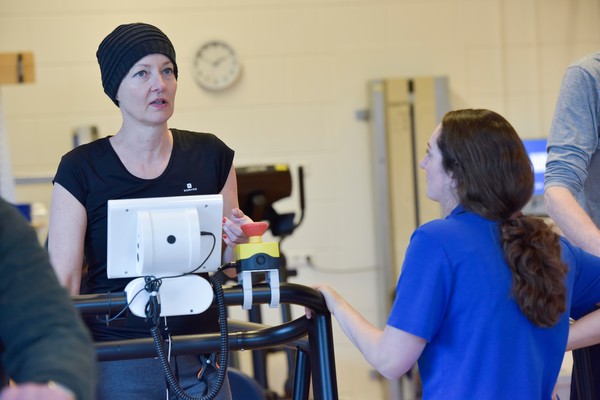Relation between preoperative performance and postoperative outcome in colorectal cancer
Cancer treatment nowadays focuses on vital functioning (physical performance in daily activities and participation) and quality of life after resection, and on reducing treatment-related complications. Besides medical data, preoperative physical functioning indicators can contribute to risk management in the colorectal cancer group. DICA, with data processor MRDM, provides data of patients undergoing colorectal surgery in a medical database-module that includes medically oriented data (DSCA). Currently however, data addressing the patients’ pre- and postoperative physical functioning is lacking in this registration, hampering the ability to identify patients who have an increased risk for postoperative complications, mortality, and protracted or even permanent loss of mobility.
For these high-risk patients, preoperative interventions to prepare them for major elective surgery by reducing the risk for morbidity and mortality and by facilitating a swift return to an adequate performance of activities of daily living is essential to preserve independent functioning and quality of life post-surgery. Consequently, costs for hospital and home care (e.g., possible admission to a nursing home) can be considerably decreased as well.
In the PROCLINA project, the hospitals MUMC+, ZGV, ZNS, and DZ will compose a clinimetric composite toolbox for measuring and monitoring physical functioning, whereas DICA and MRDM will develop a corresponding database-module complementary to the DSCA. With these tools, the four hospitals will collect physical functioning indicators to assess and monitor pre- and postoperative physical functioning in patients undergoing elective colorectal surgery for one year. Subsequently, two prototype algorithms for the preoperative prediction of postoperative medical and physical functioning complications and/or deterioration in this patient population will be developed, as well as a ‘science validated’ prototype set of outcome-indicators for benchmark information for hospitals concerning physical functioning pre- and postoperatively.
With the two prototype algorithms for the preoperative prediction of postoperative medical and physical functioning complications and/or deterioration in patients undergoing elective colorectal surgery, we subsequently aim to set up an intervention study into the effects of prehabilitation at home in high-risk patients in order to make them fit for surgery and improve their postoperative medical and functional recovery.








